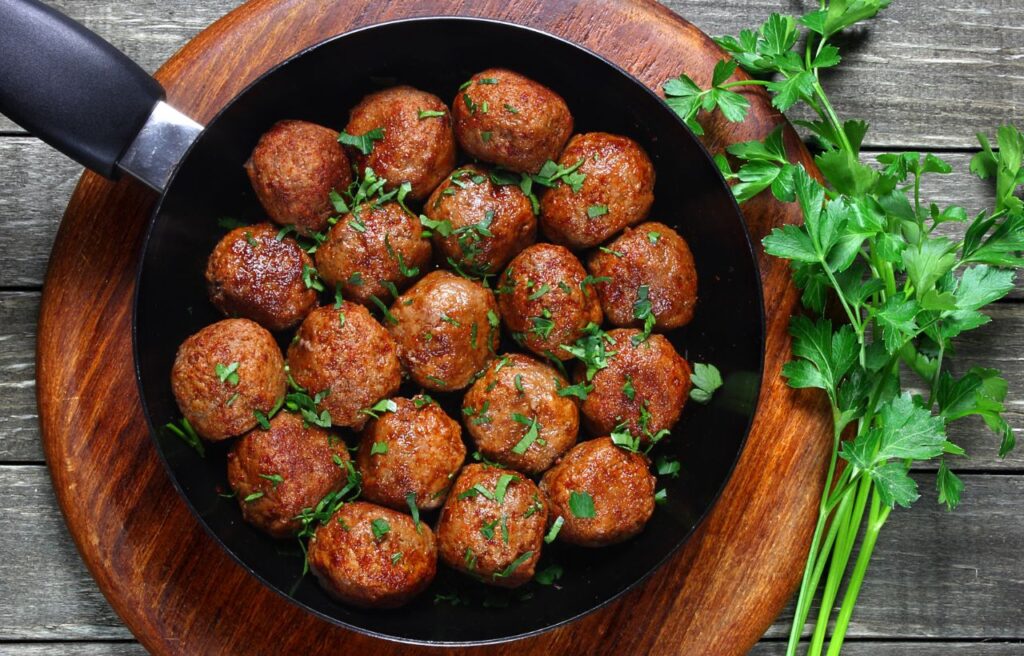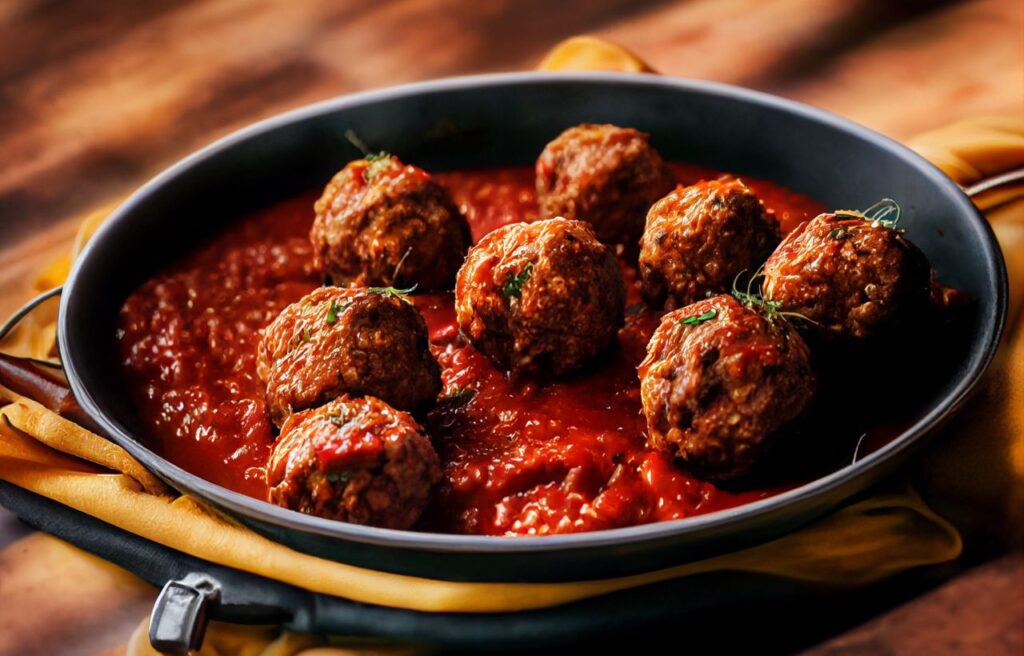We’ve all been there: you’re cooking up a delicious batch of meatballs for a family dinner or a cozy night in, but you’re unsure if they’re cooked to perfection. In this comprehensive guide, we will help you determine if your meatballs are cooked through, ensuring a satisfying and safe dining experience. Follow our expert tips and techniques to create the perfect meatballs every time.
Table of Contents
The Importance of Proper Cooking
Understanding when meatballs are cooked is essential for two main reasons: food safety and taste. Consuming undercooked meat can lead to foodborne illnesses, while overcooking can result in dry, unappetizing meatballs. Striking the right balance ensures your dish is both safe and scrumptious.
Different Types of Meatballs and Cooking Times
It’s crucial to acknowledge that cooking times may vary depending on the type of meat and size of the meatballs. Here’s a breakdown of common meatball varieties and their respective cooking times:
- Beef and Pork Meatballs: Cook for 20-25 minutes at 350°F (175°C)
- Chicken and Turkey Meatballs: Cook for 20-25 minutes at 350°F (175°C)
- Lamb Meatballs: Cook for 20-25 minutes at 375°F (190°C)
- Vegetarian Meatballs: Cook for 15-20 minutes at 350°F (175°C)
Keep in mind that these are approximate times; always check for doneness using the methods outlined below.
The Visual Inspection Method
One straightforward approach to determine if your meatballs are cooked is by conducting a visual inspection. Look for these key signs:
- Color: Meatballs should be brown and slightly crispy on the outside.
- Texture: The exterior should feel firm to the touch, while the interior should be moist but not runny.
If you’re still uncertain, you can cut into a meatball to check for doneness. Cooked meat should have a consistent color throughout, with no pink or red hues.
Using a Meat Thermometer
For a more accurate assessment, we recommend using a meat thermometer. Insert the thermometer into the center of a meatball, avoiding any bones or gristle. The internal temperature should reach the following levels for safe consumption:
- Beef, Pork, and Lamb: 160°F (71°C)
- Chicken and Turkey: 165°F (74°C)
- Vegetarian Meatballs: 165°F (74°C)
If your meatballs haven’t reached the recommended temperatures, continue cooking and check again after a few minutes.
The Touch Test
Another method for evaluating meatball doneness is the touch test. Gently press your finger against the center of a meatball. If it springs back and feels firm, it’s likely cooked through. Conversely, if it feels soft and leaves an indentation, it may require additional cooking time.

Tips for Cooking Perfect Meatballs
To ensure your meatballs are cooked to perfection, follow these helpful tips:
- Consistent Size: Shape your meatballs uniformly to promote even cooking.
- Preheat the Oven: Preheating ensures the meatballs cook evenly from the start.
- Rotate and Turn: Turn and rotate the meatballs halfway through the cooking process for uniform browning.
Expert Tricks for Flavorful Meatballs
Now that you’re a pro at cooking meatballs to perfection, let’s discuss a few expert tricks to elevate their flavor:
- Seasoning: Don’t skimp on seasoning; use a generous blend of herbs, spices, and salt to enhance the taste of your meatballs.
- Breadcrumbs and Binding: Use a mix of breadcrumbs and a binding agent like eggs to help your meatballs retain their shape and moisture.
- Rest Before Serving: After cooking, let your meatballs rest for a few minutes to allow the juices to redistribute, resulting in a tender and juicy bite.
Pairing Your Meatballs With the Perfect Sauce
No meatball dish is complete without a complementary sauce. Consider these popular options to elevate your meatball game:
- Classic Tomato Sauce: A rich, flavorful tomato sauce is always a crowd-pleaser. Combine canned tomatoes, garlic, onion, and your favorite herbs for a delicious sauce.
- Creamy Alfredo Sauce: For a luxurious twist, serve your meatballs with a creamy Alfredo sauce made from butter, heavy cream, and Parmesan cheese.
- Spicy Arrabbiata Sauce: Turn up the heat with a spicy Arrabbiata sauce, featuring crushed red pepper flakes, garlic, and tomatoes.
Serving Suggestions for Meatballs
Meatballs are versatile and can be served in various ways, including:
- Pasta: Serve your meatballs over a bed of spaghetti or your favorite pasta shape.
- Sandwiches: Stuff meatballs into a crusty sub roll, top with sauce and cheese, and broil until the cheese is melted and bubbly.
- Appetizers: Offer bite-sized meatballs on toothpicks, paired with a dipping sauce for a delightful appetizer.
Storing and Reheating Leftover Meatballs
To store leftover meatballs, place them in an airtight container and refrigerate for up to four days. When reheating, warm them in a saucepan with a bit of sauce, or reheat them in the oven at 350°F (175°C) for 10-15 minutes until heated through.
Armed with these expert tips and techniques, you’re ready to create perfectly cooked meatballs that are sure to impress family and friends. Enjoy the process, and most importantly, savor the delicious results!






